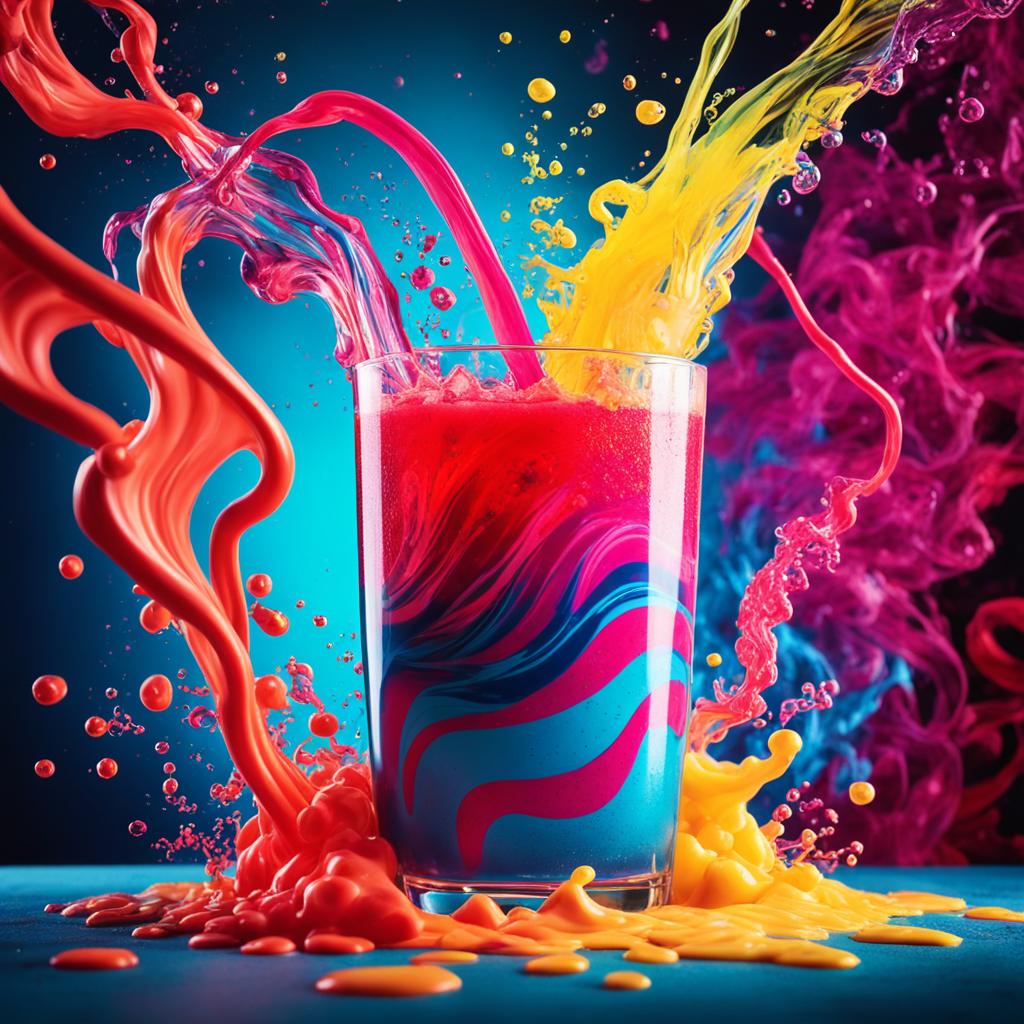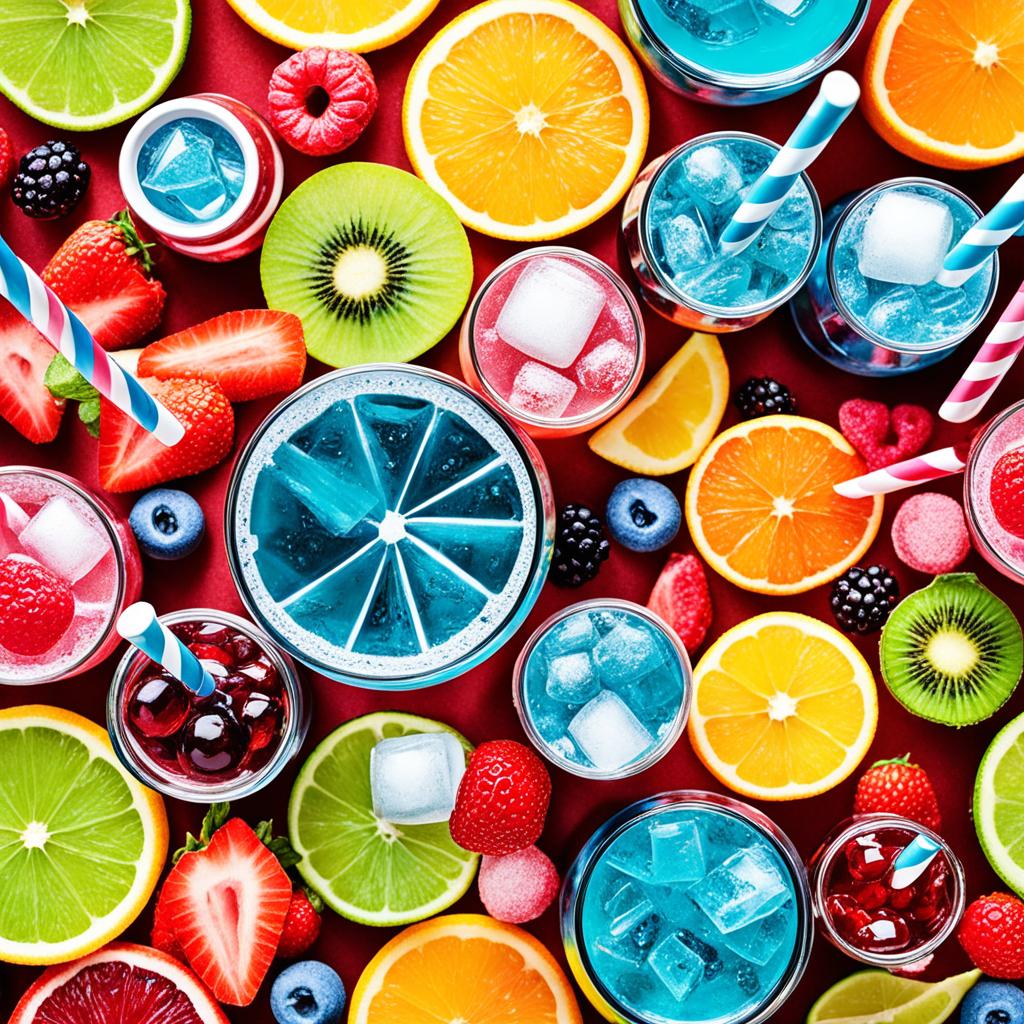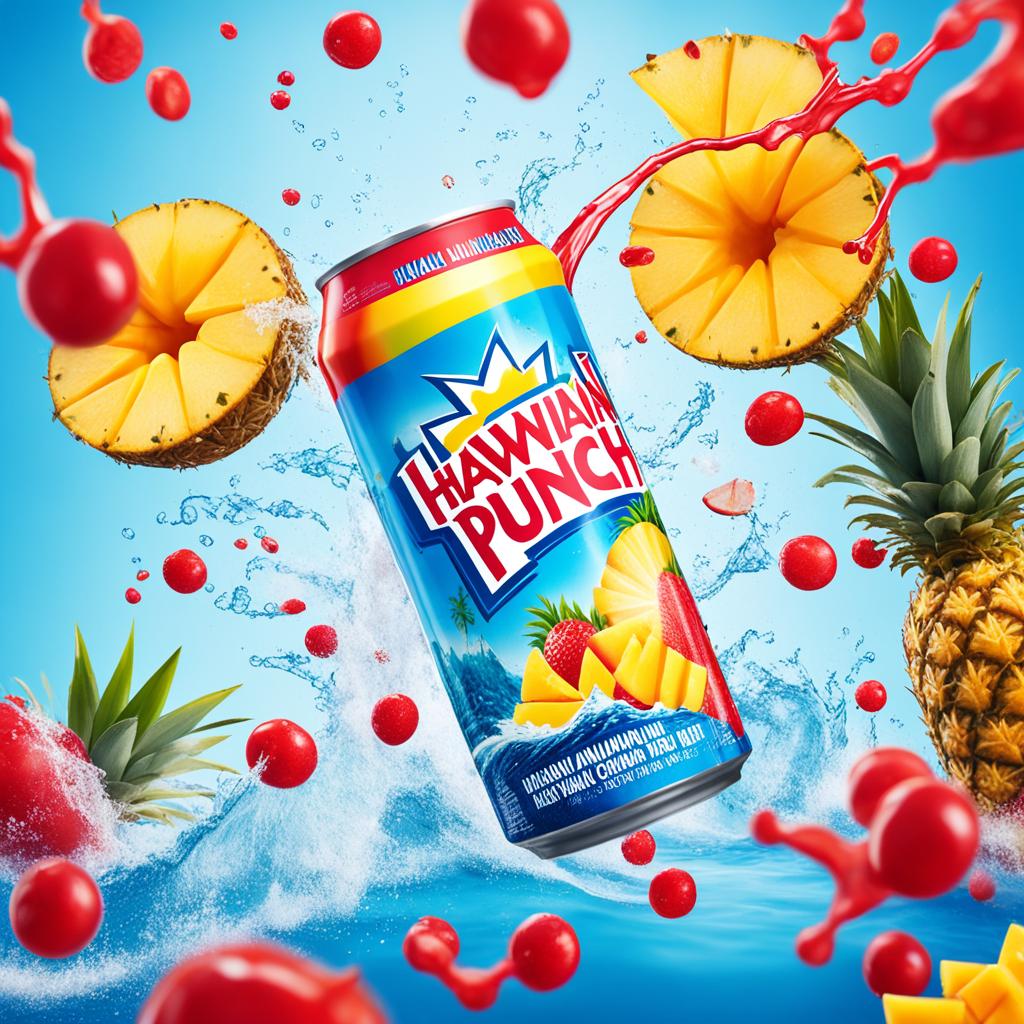When it comes to refreshing beverages, Hawaiian Punch is a popular choice. Its vibrant colors and fruity flavors are enticing, especially on a hot summer day. But have you ever wondered if Hawaiian Punch is bad for you? Does indulging in this sweet beverage come at a cost to your health?
The truth may surprise you. Hawaiian Punch contains a significant amount of sugar, with a single 12-ounce can exceeding the recommended daily limit of added sugars. But what does excessive sugar intake really mean for your body? Could Hawaiian Punch be contributing to weight gain, increased risk of obesity, elevated blood sugar levels, dental health concerns, potential link to heart disease, or even the development of type 2 diabetes?
Join us as we dive deeper into the world of Hawaiian Punch and examine its sugar content, artificial colors, additives, and potential impact on your health. Discover the link between Hawaiian Punch and childhood obesity. Plus, find out how you can make healthier choices for you and your family when it comes to sugary beverages.
If you’re ready to uncover the truth about Hawaiian Punch and its effects on your well-being, let’s get started!
Sugar Content and Its Health Implications in Hawaiian Punch
A single 12-ounce can of Hawaiian Punch contains approximately 14 grams of sugar, which exceeds the recommended daily limit for added sugars.
Excessive sugar intake can lead to various health implications:
- Weight gain: Consuming sugary beverages like Hawaiian Punch can contribute to weight gain due to their high sugar and caloric content.
- Increased risk of obesity: Excess sugar consumption, especially from drinks like Hawaiian Punch, has been linked to an increased risk of obesity.
- Spike in blood sugar levels: The high sugar content in Hawaiian Punch can cause a rapid spike in blood sugar levels, which may be harmful, particularly for individuals with diabetes.
- Dental health problems: Sugary drinks like Hawaiian Punch can contribute to tooth decay and cavities if consumed frequently or in large quantities.
- Potential link to heart disease: High sugar intake, including from sugary beverages, has been associated with an increased risk of heart disease.
- Development of type 2 diabetes: Regular consumption of sugary drinks like Hawaiian Punch can contribute to the development of type 2 diabetes over time.
It is important for consumers to be aware of the sugar content in Hawaiian Punch and the potential health risks associated with its consumption. Making informed choices about beverage options can help individuals maintain a healthier lifestyle.
Artificial Colors and Additives in Hawaiian Punch

Hawaiian Punch is known for its vibrant color, but have you ever wondered what gives it that eye-catching hue? The answer lies in artificial colors. Hawaiian Punch contains artificial colors such as Red 40 and Blue 1, which not only enhance its appearance but also come with potential health concerns.
Red 40 is a widely used artificial color in food and beverages. While it is approved by the FDA, some studies have linked it to hyperactivity in children. Although the evidence is not conclusive, it’s worth considering if you have children who consume Hawaiian Punch regularly.
Blue 1, another artificial color found in Hawaiian Punch, has also raised concerns. Some studies have suggested a potential link between Blue 1 and cancer. Although further research is needed to establish a clear connection, it’s important to be aware of any potential risks.
Aside from artificial colors, Hawaiian Punch also contains additives that may impact your health. Two common additives in Hawaiian Punch are sodium hexametaphosphate and sodium benzoate.
Sodium hexametaphosphate is a preservative used to prevent the growth of bacteria and mold. However, it has been associated with kidney health concerns in certain studies. While the levels found in Hawaiian Punch are within the approved limits, individuals with pre-existing kidney issues may want to be cautious.
Sodium benzoate is another preservative used in Hawaiian Punch. However, when combined with certain ingredients, sodium benzoate can undergo a chemical reaction that forms benzene. Benzene is a known carcinogen and has been linked to cancer. It is important to note that the levels of benzene in Hawaiian Punch are typically low and fall within acceptable limits set by regulatory authorities. Nonetheless, it’s crucial to be aware of this potential risk.
High fructose corn syrup (HFCS) is yet another additive in Hawaiian Punch. It is a sweetener that has been extensively used in various food and beverage products. However, HFCS has been associated with obesity, type 2 diabetes, and metabolic syndrome. The overconsumption of products containing HFCS can contribute to these health issues. It’s important to consider the impact of HFCS on your health when consuming Hawaiian Punch.
| Artificial Colors | Additives |
|---|---|
| Red 40 | Sodium hexametaphosphate |
| Blue 1 | Sodium benzoate |
| – | High fructose corn syrup (HFCS) |
Link Between Hawaiian Punch and Childhood Obesity

Hawaiian Punch, along with other sugary beverages, has been linked to childhood obesity. The high sugar content and caloric density of Hawaiian Punch contribute to excess calorie intake and weight gain. When children consume sugary drinks like Hawaiian Punch, it can also impact their appetite regulation, leading to overeating and a preference for sweet foods and drinks.
Studies have shown that children who consume one or more sugar-sweetened beverages per day are more likely to be overweight or obese. This is a significant concern as childhood obesity can have serious health implications, such as an increased risk of developing chronic conditions like type 2 diabetes and heart disease.
Organizations like the Centers for Disease Control and Prevention (CDC) and the World Health Organization (WHO) recommend limiting the consumption of sugary drinks to prevent childhood obesity. By reducing the intake of Hawaiian Punch and other similar beverages, parents can help promote healthier habits and prevent weight-related health issues in their children.
It’s important to prioritize alternatives to sugary drinks, such as water, milk, and pure fruit juice (in moderation). These options provide hydration and essential nutrients without the excessive added sugars found in drinks like Hawaiian Punch. By making informed choices about beverage consumption, parents can play a crucial role in promoting their children’s health and well-being.
Q&A on Sugary Beverages

Kids often love sweet drinks, but many children’s drinks are loaded with added sugar and lack nutritional value. The American Heart Association recommends that kids get no more than 3 teaspoons of sugar per day, but they typically consume much more. Popular drinks like Hawaiian Punch, Hi-C, SunnyD, Capri Sun, and sodas contain high amounts of sugar.
It is important for parents to be mindful of the sugar content in children’s drinks and provide healthier alternatives to avoid excess sugar consumption. Healthier alternatives include:
- Water: Encourage your kids to drink water throughout the day. It’s a zero-calorie, sugar-free option that promotes hydration.
- Milk: Milk is a nutritious beverage that provides essential nutrients like calcium and vitamin D. Opt for low-fat or non-fat milk options.
- Pure Fruit Juice (in moderation): Instead of sugary fruit punches, offer your kids pure fruit juice in moderation. Look for 100% juice options without added sugars.
By making these healthier choices, you can help reduce your child’s sugar intake and promote their overall well-being.
EWG’s Food Scores for Hawaiian Punch
When it comes to assessing the nutritional value of Hawaiian Punch, EWG’s Food Scores provides valuable insight. According to their analysis, Hawaiian Punch contains low-calorie sweeteners, artificial food dyes, and certain ingredients that raise concerns, such as aspartame and acesulphame potassium.
EWG’s Food Scores take various factors into account, including the calorie density, sugar content, and other negative aspects of a product. In the case of Hawaiian Punch, it has been assigned a moderate processing concerns classification.
As a consumer, it’s important to be aware of these findings and carefully consider the potential impacts of the additives and processing methods used in Hawaiian Punch. Understanding the nutritional composition of the drink can help you make informed choices about what you consume and prioritize your health.


